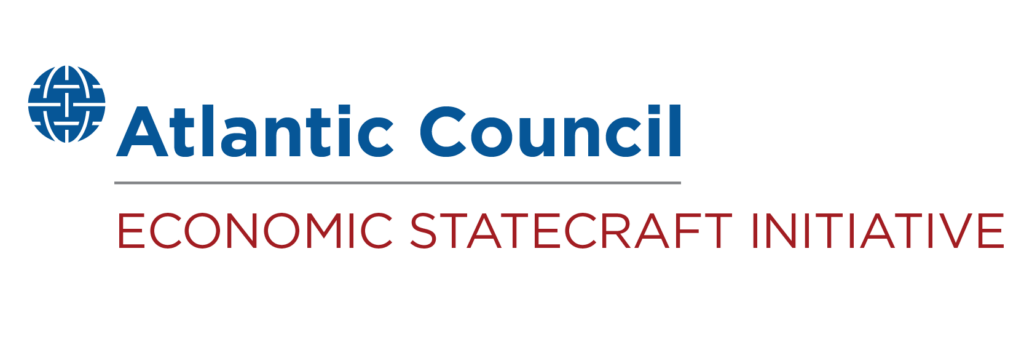Sarah Bauerle Danzman testifies before the House Committee on Financial Services on US policy on investment security
On July 16, Sarah Bauerle Danzman, nonresident senior fellow with the Atlantic Council’s Economic Statecraft Initiative, testified before the House Committee on Financial Services Subcommittee on National Security, Illicit Finance, and International Financial Services at a hearing titled, “US Policy on Invesment Security.” Below are her prepared remarks.
Thank you, Chairman Davidson and Ranking Member Beatty, as well as your hard-working staff, for inviting me to testify on evolving investment security issues of concern to this subcommittee, to Congress, and to the American people. It is an honor to speak with the committee today.
I must start by clarifying that the views expressed in my testimony today are my own, and do not necessarily reflect the view of my employer, Indiana University, or of the Atlantic Council, where I am a nonresident fellow.
I speak today as someone with both an academic and a government background. I am an associate professor of international studies at the Hamilton Lugar School at Indiana University. My research expertise includes the politics of investment liberalization, investment attraction, and the intersection of national security and investment policy, most notably inbound investment screening.
As a Council on Foreign Relations international affairs fellow, I worked as a policy advisor and CFIUS staffer in the Office of Investment Affairs at the Department of State from August 2019 to August 2020. Since that time, I have continually engaged in policy analysis and thought leadership on issues of investment security and American innovation in my capacity as a fellow at the Atlantic Council and as a term member at the Council on Foreign Relations, where I am currently serving as a member of a task force on economic security.
In any policy process or critical assessment of a regulation’s effectiveness, we must start by defining the problem we wish to solve, the goals that guide our strategy, and the outcomes that would signify success. I define the issue space before the committee on these terms:
- A largely open, market-driven economy is a key source of American innovation, economic prosperity, and military strength. Therefore, maintaining market-driven, economically open principles should be a core national security priority.
- We also face substantial near-term challenges generating critical market failures that require policy responses. These challenges include rapid technological advances in computing, energy, and weaponry. In addition, China’s size, material resources, and desire to directly challenge US interests makes its overcapacity, market distortions, and market capture in several critical supply chains both a national security and an economic competitiveness challenge.
- Our goal with investment security strategy should be to maintain as much openness to inward and outward investment as possible—which helps markets allocate capital efficiently, keeping us on the technological frontier and creating high-quality, future-oriented jobs—while erecting guardrails necessary to prevent our openness from being exploited by strategic competitors or malicious actors or from inadvertently generating negative security externalities that make the United States vulnerable to critical supply chain disruptions or fundamental diminishment of our productive capacity.
- We will know that our policies are working if:
- Transactions that would be concerning to the United States from a national security perspective are consistently considered under the jurisdiction of relevant authorities. That is, our policies are scoped to capture the activities that generate national security risks.
- The relevant agencies consistently and efficiently process CFIUS reviews and monitor outbound investments such that the US government is using its authorities as intended by Congress.
- US firms understand their regulatory obligations and can comply with such regulations without undue burden to their ability to continue to operate, grow, and innovate.
- Partners and allies actively collaborate with the United States, particularly with respect to outbound investment and dual-use technology considerations, to ensure that our actions collectively create binding constraints on the aspirations of countries of concern to leapfrog the United States and our military allies in the military technology domain.
- The United States continues to be a top destination of FDI, particularly in advanced manufacturing, pharmaceuticals, biotechnology, artificial intelligence and quantum computing, and other industries at the intersection of technological advancement and high-quality employment.
- The United States and companies within its innovation ecosystem continues to operate at the frontier of technological innovation and set the standards for these technologies of the future.
As Congress evaluates current national security regulation for inward investment—CFIUS —and outbound investment—the Outbound Investment Security Program—I encourage representatives to ensure that any additional congressional action aligns with the following five principles:
Clear: Investment security policy should be clear to US companies and foreign investors. The compliance burden of inbound and outbound investment regulation, particularly for private equity and venture investors has increased tremendously in recent years. These compliance costs are compounded by complicated and escalating export controls. Investors need to understand what their obligations are. To ensure buy-in and robust compliance, the business community needs to believe these restrictions on their activities serve a legitimate public good. Frequent updates to investment rules make the policy environment unstable and expectations for the future regulatory landscape uncertain. Retroactive application of law also generates concern over future respect for property rights and should be avoided.
Consistent: Investment security should be consistently applied. Investors and companies should not be differentially treated based on personal relationships with or connections to administration officials. For CFIUS, this means that review should remain fact-based and at the working level as much as possible. Parties before the committee should not receive favorable treatment if they are well-connected to the administration or to a member of Congress. Similarly, parties before CFIUS should not be discriminated against if they are perceived to be insufficiently deferential to the administration. For the Outbound Investment Security Program, this means that the process for receiving an exception to prohibition should be clearly publicized, subject to a rigorous, regularized review process, and the outcome of such determinations should be quickly notified to Congress and the public. In the absence of oversight, CFIUS and the outbound program could become the site of special dealing that is inconsistent with the rule of law or the foundations of a dynamic market-based economy.
Contained: Investment security should be contained to a narrow set of clear national security concerns. Congress should resist temptations to use investment security tools for purposes other than national security. The United States has national and economic security interests that intersect, and sometimes conflict, with the investment activities of US multinationals and investors. Overregulation will reduce investment in the US, which will negatively affect jobs and innovation capacity. The authority to intervene in an inbound or outbound transaction must be limited to a fact-based national security risk assessment. Congress should resist the urge to further expand CFIUS authorities to address broad national interest concerns. It should also remind CFIUS officials that mitigation agreements should be proportional to identified risks and should only be used to address national security concerns rather than expansive economic competitiveness issues. Any outbound legislation should focus on national security risks associated with a very narrow set of indigenous technological development in countries of concern. Outbound should only place limits on investments in technologies for which the US holds a lead over countries of concern. The likely innovation costs of restricting outbound investment in other technologies are too high to entertain.
Collaborative: Investment security policy should be collaborative. US power benefits from centrality in global innovation, finance, trade, and diplomatic networks and our strategies should function to further embed us in such networks rather than insulate us from them. Building multilateral support and coordination is especially necessary for effectively countering Chinese efforts to gain access to Western-developed dual-use technologies to modernize their military capabilities. Technology, investment, and know-how are very hard to control unilaterally. Acting multilaterally also reduces the costs of monitoring and enforcement, which saves US taxpayer money and frees additional resources for investments in American families, workers, and communities. Strategies that emphasize the use of unilateral financial sanctions to address outbound investment concerns are extraterritorial in nature, unnecessarily divisive to an international investment security coalition, and are likely to backfire.
Curious: Investment security policy should be curious. Many of the investment security policies that the United States has implemented in recent years are novel, addressing problems for which there remains a great deal of uncertainty about the size of the concern and the cost of potential solutions. These uncertainties mean policies in this area are risky – we have less certainty over their effect and their unintended consequences. Therefore, ongoing assessment of policy effectiveness is vital. Investment security policies should be subjected to cost-benefit analysis at regular intervals to better understand the trade-offs to economic dynamism and technology innovation that investment restrictions induce. If measures of innovation drop, Congress should be prepared to work with industry to better understand why and should be willing to reverse course if it becomes clear that a policy has failed or has unacceptable unintended consequences.
In sum, members of Congress should ensure that investment security policy is clear, consistent, contained, collaborative, and curious. In doing so, Congress will construct policy that can effectively balance the real, near-term national security concerns of certain kinds of inward and outward investments with the reality that the United States’ commitment to an open, market-based economy has been the foundation of American prosperity, power, and security since its founding and will continue to be a guiding principle of this great nation for our future generations.

Economic Statecraft Initiative
Housed within the GeoEconomics Center, the Economic Statecraft Initiative (ESI) publishes leading-edge research and analysis on sanctions and the use of economic power to achieve foreign policy objectives and protect national security interests.
Image: US Capitol
